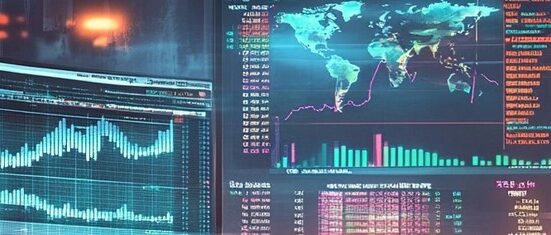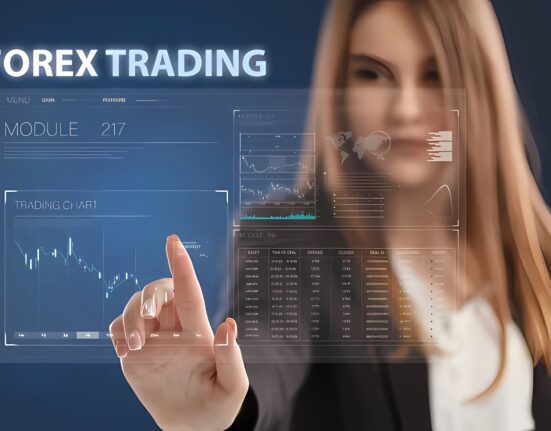Understanding the Forex Market: An Overview

The foreign exchange market, commonly known as Forex or FX, is a global marketplace for exchanging national currencies against one another. Due to its reach across the globe, it is the largest and most liquid market in the world. With a daily trading volume exceeding $6 trillion, it operates 24 hours a day during the weekdays, covering major financial centers such as New York, London, Tokyo, and Sydney.
Forex trading involves buying one currency and simultaneously selling another, forming a currency pair. The market is decentralized, meaning it lacks a centralized exchange and trading occurs over-the-counter (OTC) via electronic networks. This structure provides immense flexibility and accessibility for traders around the world.
Major Currency Pairs and Their Significance

Currency pairs are the foundation of Forex trading, categorized into three types: major, minor, and exotic pairs.
- Major Pairs: These include the most traded currencies globally and feature some combination of the US dollar (USD). Examples include EUR/USD, GBP/USD, and USD/JPY. Major pairs are characterized by high liquidity and lower volatility, making them favorable for beginners.
- Minor Pairs: Also known as cross-currency pairs, these do not include the USD. Examples are EUR/GBP, EUR/AUD, and GBP/JPY. They are less liquid than major pairs and can exhibit higher volatility.
- Exotic Pairs: These consist of one major currency and another from a developing or smaller economy, such as USD/TRY or USD/SEK. Exotic pairs offer higher potential returns but come with increased risk due to lower liquidity and wider spreads.
Key Players in the Forex Trading Arena

The Forex market comprises a diverse array of participants, each playing a crucial role:
- Central Banks: They manage national reserves and monetary policy, directly influencing currency values.
- Commercial Banks: Major financial institutions facilitate large volumes of Forex transactions, contributing significantly to market liquidity.
- Corporations: Engage in Forex trading to hedge currency risks associated with international trade.
- Retail Traders: Individual investors using online platforms to speculate on currency price movements.
- Hedge Funds and Investment Managers: Invest in Forex as part of diversified portfolios to achieve higher returns.
Each of these players has different motivations and strategies, affecting market dynamics continuously.
How Economic Indicators Impact Forex Rates

Economic indicators are critical data points used to gauge the health of an economy and predict currency fluctuations. Key indicators include:
- Gross Domestic Product (GDP): A strong GDP growth rate indicates economic expansion, likely strengthening the national currency.
- Interest Rates: Central banks adjust rates to control inflation and stabilize the economy. Higher rates generally attract foreign capital, boosting currency value.
- Employment Data: High employment levels can lead to increased consumer spending, stimulating economic growth and currency appreciation.
- Inflation Rates: Moderate inflation is beneficial, but high levels erode purchasing power, negatively impacting the currency.
Forex traders keenly follow these indicators to make informed trading decisions.
Techniques for Analyzing Forex Market Trends

Successful Forex trading requires a solid understanding of market analysis techniques:
- Technical Analysis: Involves studying historical price data and patterns using charts and technical indicators like moving averages and RSI (Relative Strength Index).
- Fundamental Analysis: Focuses on economic events and indicators to forecast currency movements. It includes examining news releases, geopolitical developments, and monetary policies.
- Sentiment Analysis: Gauges market mood and trader behavior, often reflected in commitment of traders (COT) reports and sentiment indices.
Employing a combination of these techniques can enhance the accuracy of trading predictions.
Risk Management Strategies for Forex Traders

Risk management is crucial to protect investments and ensure long-term success in Forex trading:
- Set Stop-Loss Orders: Automatically close trades at predetermined loss levels to minimize potential damage.
- Diversify Your Portfolio: Spread investments across various currency pairs to reduce exposure to any single market risk.
- Use Leverage Wisely: While leverage magnifies potential profits, it also increases risk. Use it judiciously and within limits you can afford to lose.
- Keep Emotions in Check: Emotional trading can lead to impulsive decisions. Stick to your trading plan and strategies.
- Stay Informed: Continuously update your knowledge and adapt to changing market conditions.
Risk management is the cornerstone of responsible Forex trading, allowing traders to navigate the volatile market landscape effectively.
In conclusion, understanding the basics of Forex trading is essential for anyone looking to venture into this dynamic financial market. By grasping the intricacies of currency pairs, key players, economic influences, analytical techniques, and risk management, traders can develop a well-rounded approach to Forex trading and increase their chances of success.









Leave feedback about this